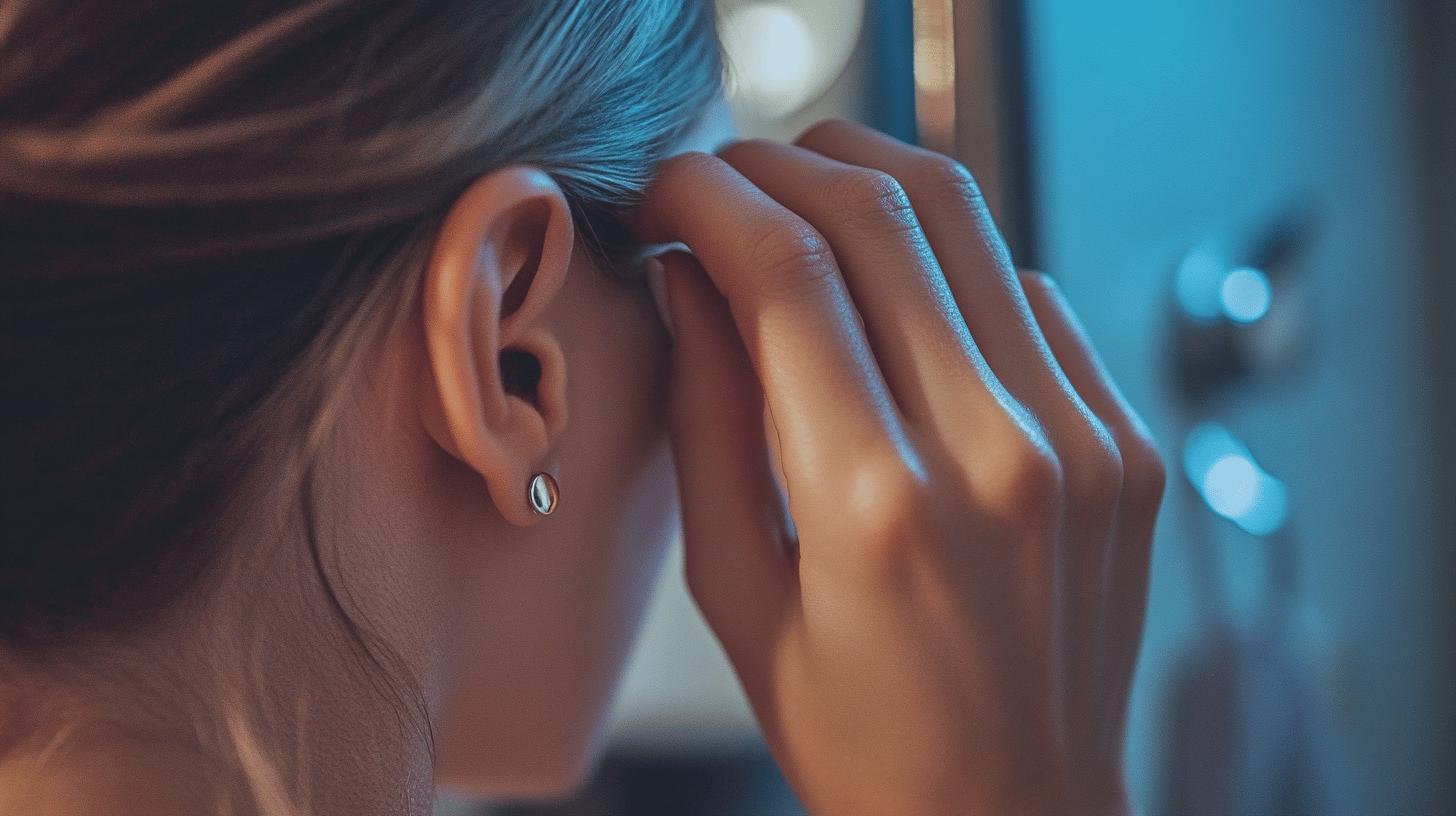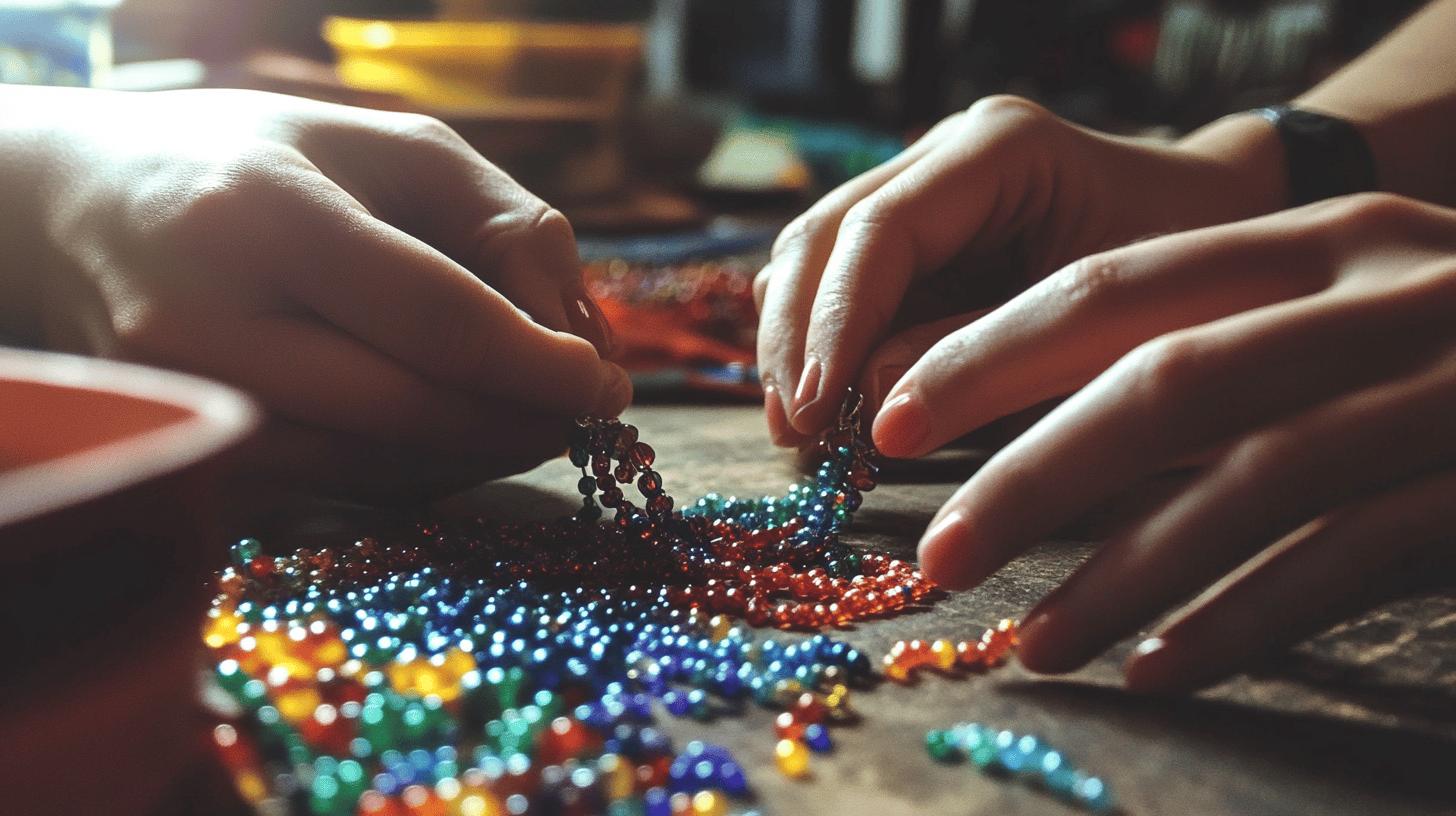
Why do some earrings bring discomfort and irritation? Wearing earrings should enhance your style, not leave you dealing with sore, swollen earlobes. This issue often stems from common causes like allergic reactions, particularly from nickel, infections, or poor-quality materials. Many suffer reactions without realising simply what is to blame. Understanding why our ears react and learning how to choose suitable jewellery can be both eye-opening and life-changing. This guide explores the reasons for ear pain and explains how to keep your ears happy with suitable earrings.
Common Causes of Ear Pain from Earrings
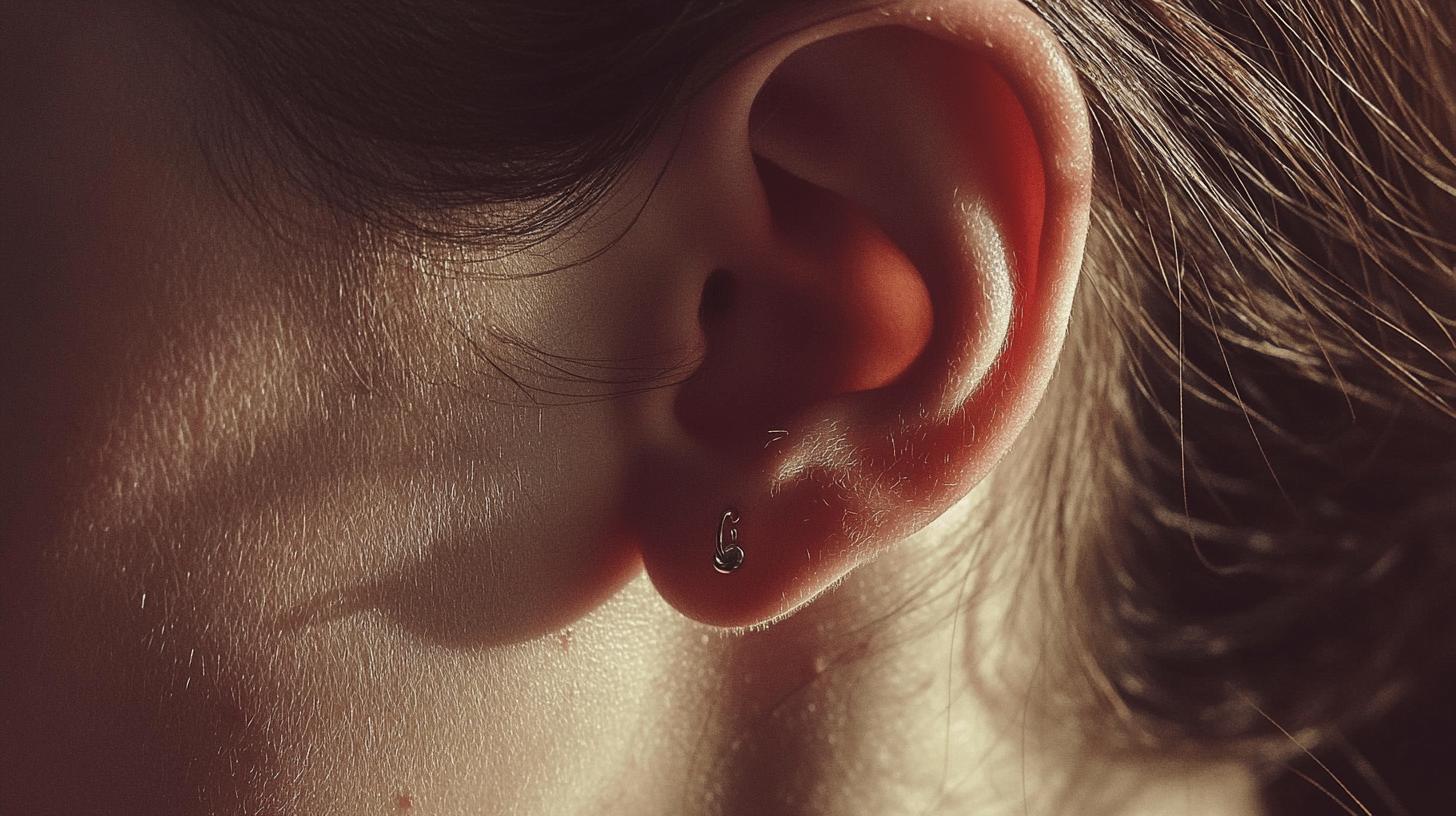
Ear pain from wearing earrings is often attributed to several causes, with allergic reactions being a primary factor. Many individuals experience discomfort, such as itching and redness, due to allergies. Earring materials, especially those containing nickel, can trigger allergic responses, leading to swelling and rash.
Nickel is notorious for causing allergic reactions, as many earrings contain traces of this metal. Those sensitive to nickel may suffer from swelling and irritation upon contact. It’s important to note that allergies to metals like nickel can develop suddenly, even after years of wearing earrings without issue. Identifying and avoiding earrings containing such allergens is crucial in managing symptoms and preventing further discomfort.
- Allergic reactions: Often due to metals like nickel.
- Infections: Resulting from improper care or handling.
- Poor-quality materials: Can irritate the skin.
- Improper earring size: May cause physical discomfort.
- Cross-reactivity with other metals: Such as cobalt.
Infections are another prevalent cause of ear pain. These typically occur when piercings are not cleaned properly, allowing bacteria to fester. Additionally, inferior materials used in low-quality earrings can exacerbate irritation, leading to pain. Ensuring earrings are made from high-quality, hypoallergenic materials and are appropriately sized can significantly reduce the risk of pain and swelling.
Identifying Allergic Reactions to Earrings
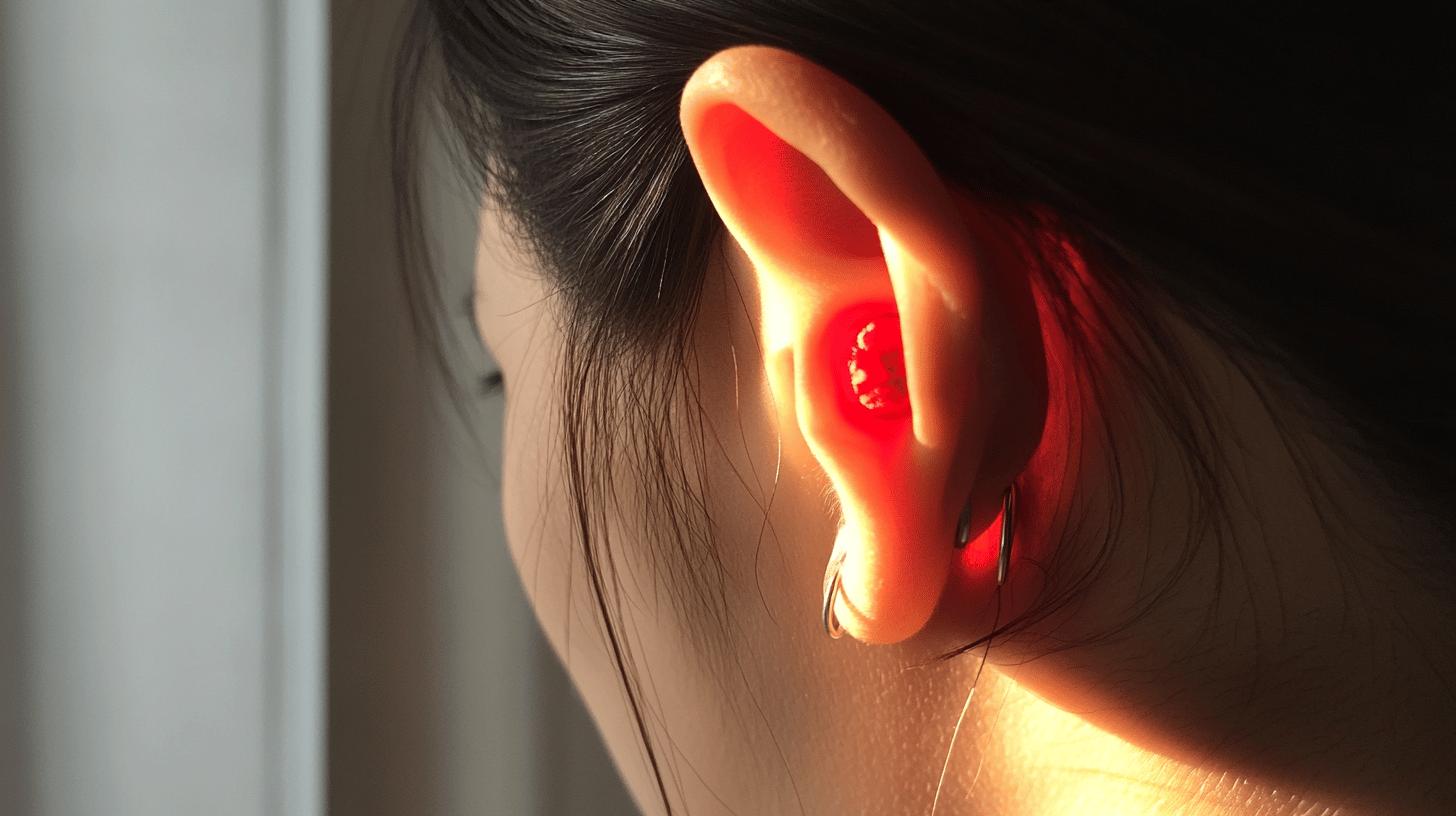
Earring allergies often manifest through symptoms such as itching, redness, and swelling around the piercing site. These reactions occur when the skin comes into contact with allergenic substances, leading to discomfort and irritation.
Nickel allergy is particularly common and is a frequent cause of allergic reactions to earrings. It can be confirmed through a patch test, which helps identify the presence of a nickel allergy by applying a small amount of the metal to the skin and observing for any reaction. Many earrings contain nickel, making it essential for individuals prone to allergies to be vigilant about the materials in their jewellery. Persistent exposure can lead to chronic irritation and worsening symptoms.
Cross-reactivity can occur with other metals, such as cobalt, which can cause similar allergic reactions. This means that individuals allergic to nickel might also react to cobalt or other related metals. Understanding these cross-reactions is crucial for those with metal sensitivities, as avoiding one metal may not be sufficient to prevent allergic responses.
Managing a nickel allergy involves opting for hypoallergenic earrings, which are specifically designed to avoid materials like nickel that commonly trigger allergies. Selecting earrings crafted from materials such as titanium, stainless steel, or high-grade gold can help minimise the risk of allergic reactions. Avoiding nickel-containing jewellery is a critical step in preventing allergy symptoms, ensuring that individuals can enjoy wearing earrings without discomfort.
How to Treat Infected Ear Piercings
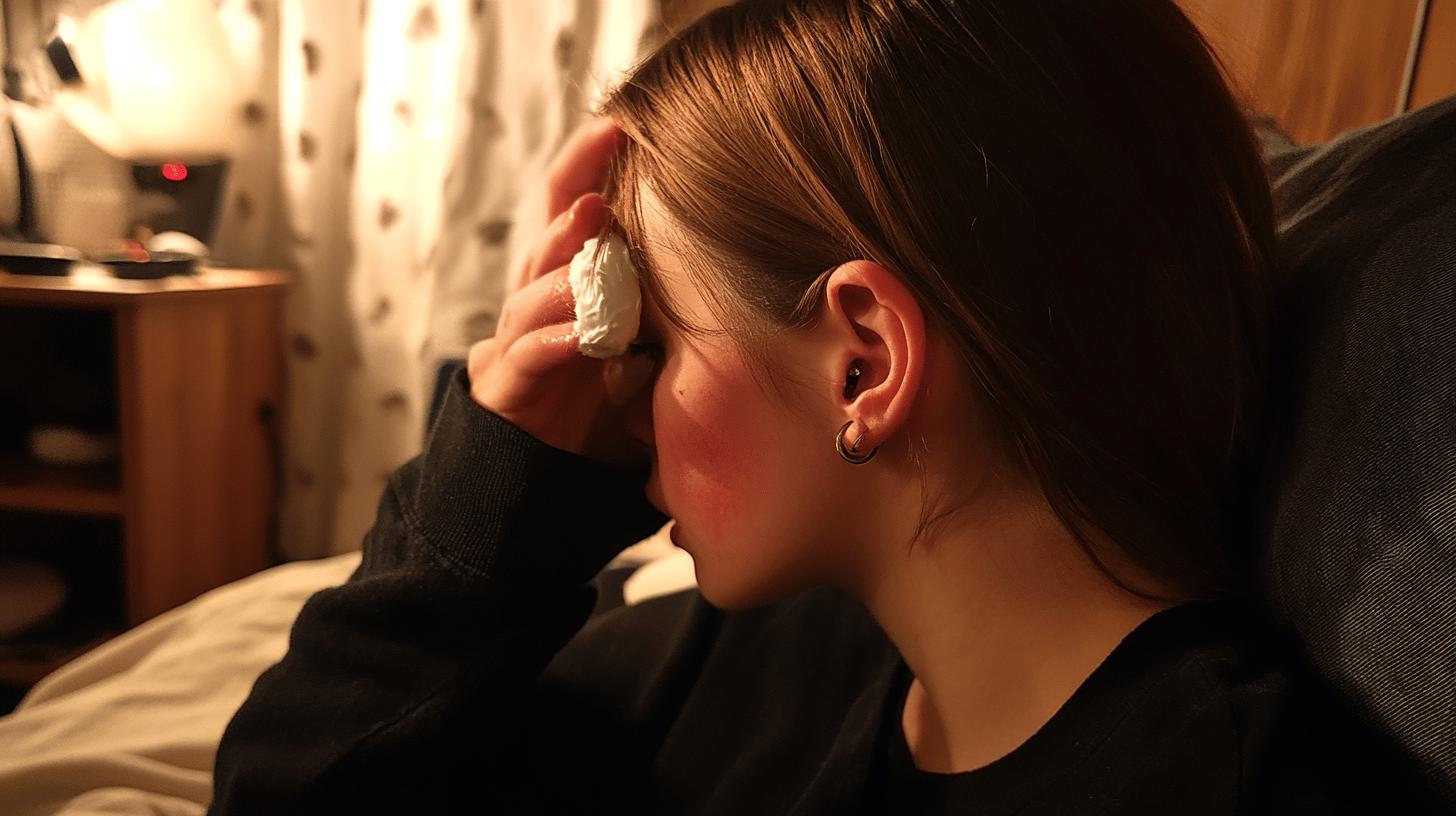
Infected ear piercings can present with symptoms such as redness, swelling, and the presence of pus around the piercing site. These symptoms indicate inflammation and infection, which can cause significant discomfort. Infections typically occur due to improper care or the introduction of bacteria to the piercing area.
To effectively treat an infected ear piercing, start by cleaning the area with a saline solution. This helps to remove any debris or bacteria from the site. After cleaning, apply an antibiotic ointment to the piercing to help combat the infection. For the best results, use an ointment recommended for skin infections. In cases where the infection is more severe, oral antibiotics may be necessary to fully clear the infection. Over-the-counter pain relief can also be used to manage any associated discomfort during the healing process.
- Clean the piercing with a saline solution.
- Apply antibiotic ointment to the affected area.
- Consider oral antibiotics if the infection persists or worsens.
- Use over-the-counter pain relief to ease discomfort.
Seek medical attention if the symptoms do not improve within a few days or if they worsen significantly. Persistent infections can lead to more serious complications, requiring professional intervention. If you experience severe pain, fever, or if the pus becomes excessive, it’s crucial to consult a healthcare professional. They can prescribe stronger medications or provide additional treatments to ensure proper healing and prevent further issues.
Choosing Hypoallergenic Earrings for Sensitive Ears
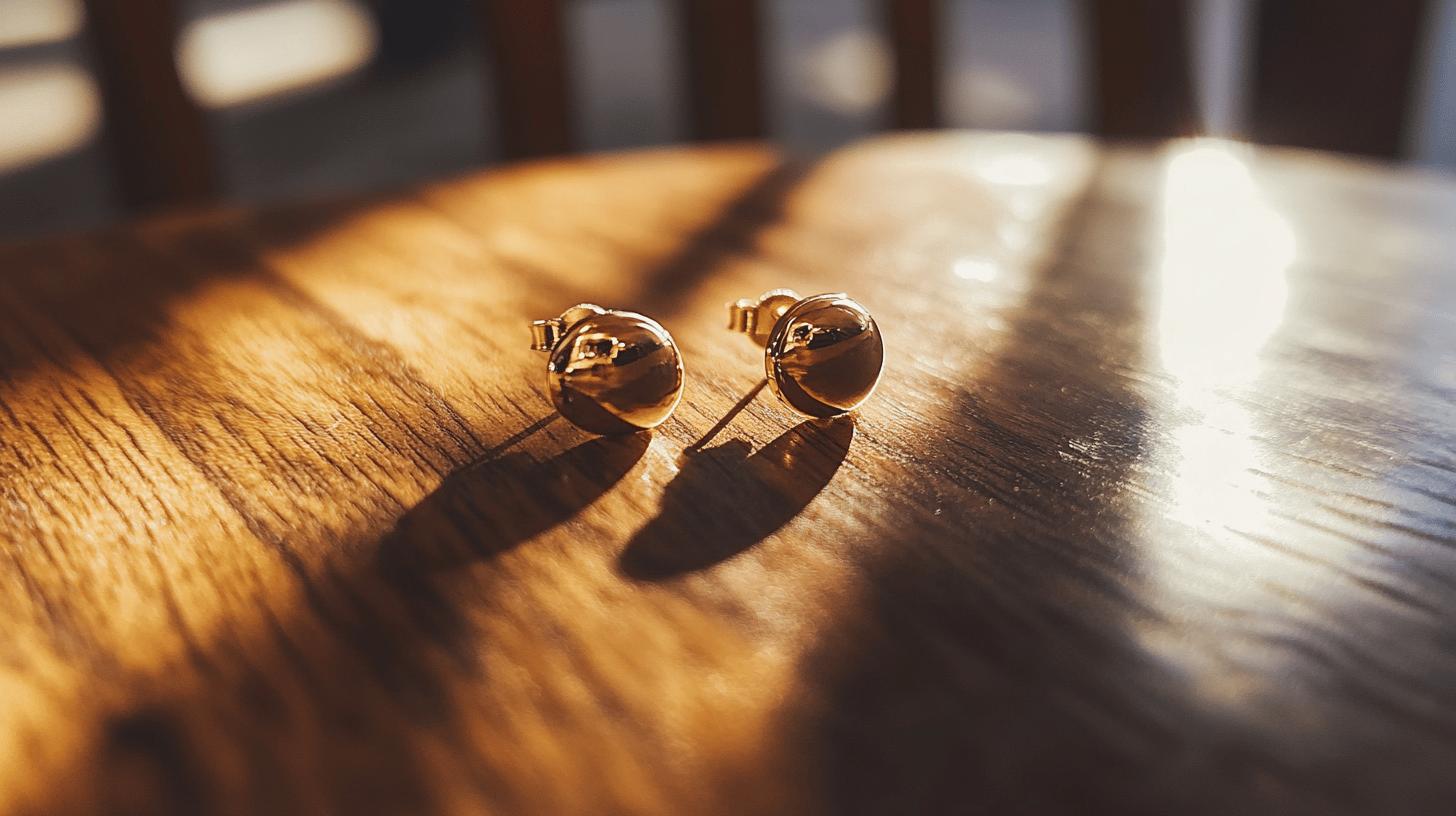
Hypoallergenic earrings are designed to reduce the risk of allergic reactions by avoiding materials that commonly cause irritation, such as nickel, brass, copper, and zinc. These earrings are specifically crafted to be gentle on sensitive skin, providing a safer option for those who experience discomfort from standard jewellery.
Stainless steel, titanium, and gold are among the most popular materials used in hypoallergenic earrings. Stainless steel is known for its durability and resistance to corrosion, making it a reliable choice. Titanium is lightweight yet robust, offering comfort and strength, while gold, particularly when it is of high purity, is less likely to cause allergic reactions. These materials are carefully selected to ensure that individuals with sensitive ears can wear earrings without experiencing pain or irritation.
- Reduced risk of allergic reactions.
- Suitable for sensitive skin.
- Durable and long-lasting materials.
- Wide variety of styles and designs.
- Increased comfort during wear.
Amore Jewellery provides a wide range of hypoallergenic earrings tailored for sensitive ears. Their collection includes various styles crafted from materials like stainless steel and titanium, ensuring both style and safety. Proper earring care is also crucial to avoid irritation, so regular cleaning and maintenance are recommended. By selecting earrings from reputable sources like Amore Jewellery, individuals can enjoy fashionable accessories without compromising on comfort or health.
Proper Care for Ear Piercings to Avoid Pain

Maintaining good hygiene is essential to prevent infections and pain associated with ear piercings. Regular cleaning helps keep the piercing site free from bacteria and debris, significantly reducing the risk of infection. Using a saline solution is one of the most effective methods for cleaning piercings. It gently removes impurities without irritating the skin. Additionally, always handling piercings with clean hands is crucial, as dirty hands can introduce bacteria and increase the likelihood of infection. By adopting these hygiene practices, individuals can enjoy their earrings without discomfort or health concerns.
- Clean with a saline solution regularly.
- Always handle with clean hands.
- Avoid using alcohol-based cleaners as they can dry the skin.
- Rotate the earrings gently to prevent sticking.
Avoiding sleeping in earrings is another important practice to reduce irritation and promote healing. Sleeping with earrings can exert pressure on the piercing site, leading to discomfort and potential swelling. This is particularly important during the initial healing phase after getting a piercing. Opt for earrings made from high-quality, hypoallergenic materials to further minimise irritation. By following these additional care practices, individuals can ensure their ear piercings remain healthy and pain-free.
Understanding Metal Allergies from Earrings
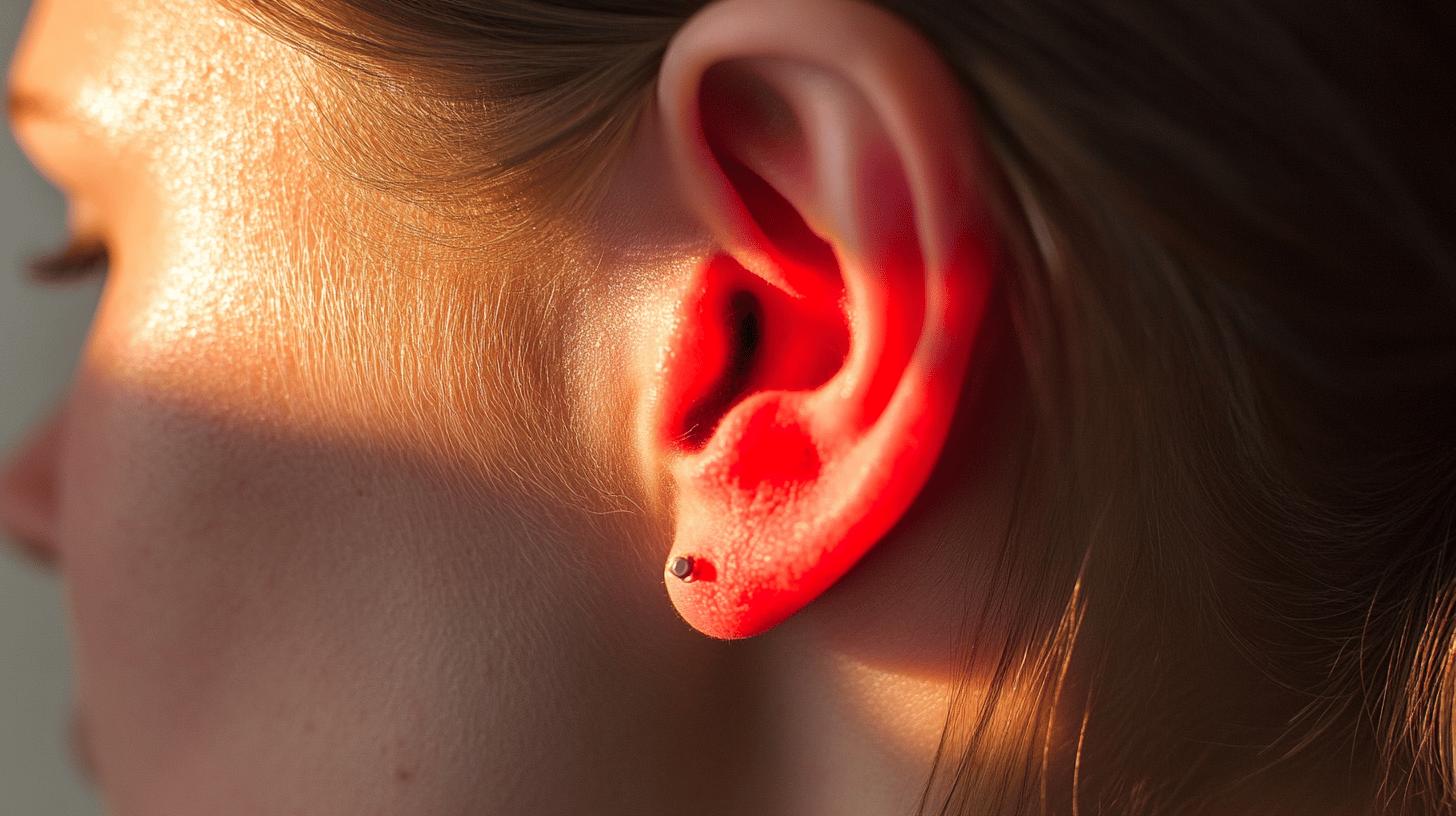
Metal allergies can develop suddenly, even if earrings have been worn without issue for years. This unexpected onset can be perplexing, leading to discomfort and irritation seemingly without warning.
Symptoms of a metal allergy include itching, redness, and swelling around the earring site. These reactions occur when the immune system identifies certain metals as threats, prompting an allergic response. The severity of these symptoms can vary, ranging from mild irritation to more pronounced reactions that necessitate medical attention.
Nickel is the most common metal responsible for allergic reactions in earrings. It is frequently used in the production of jewellery and can cause significant discomfort for those who are sensitive. Even small traces of nickel can trigger an allergic response, making it crucial for individuals with this sensitivity to be cautious when selecting earrings.
The NHS advises managing metal allergies by opting for hypoallergenic jewellery, which is designed to minimise the risk of allergic reactions. Hypoallergenic options often include materials such as titanium, stainless steel, and gold that are less likely to cause irritation. By choosing such materials, individuals can reduce the likelihood of experiencing allergic symptoms, allowing them to wear earrings comfortably and safely. Regular monitoring of symptoms and seeking medical advice if reactions persist are also recommended to effectively manage metal allergies.
Why Quality Matters: Avoiding Pain with High-Quality Earrings
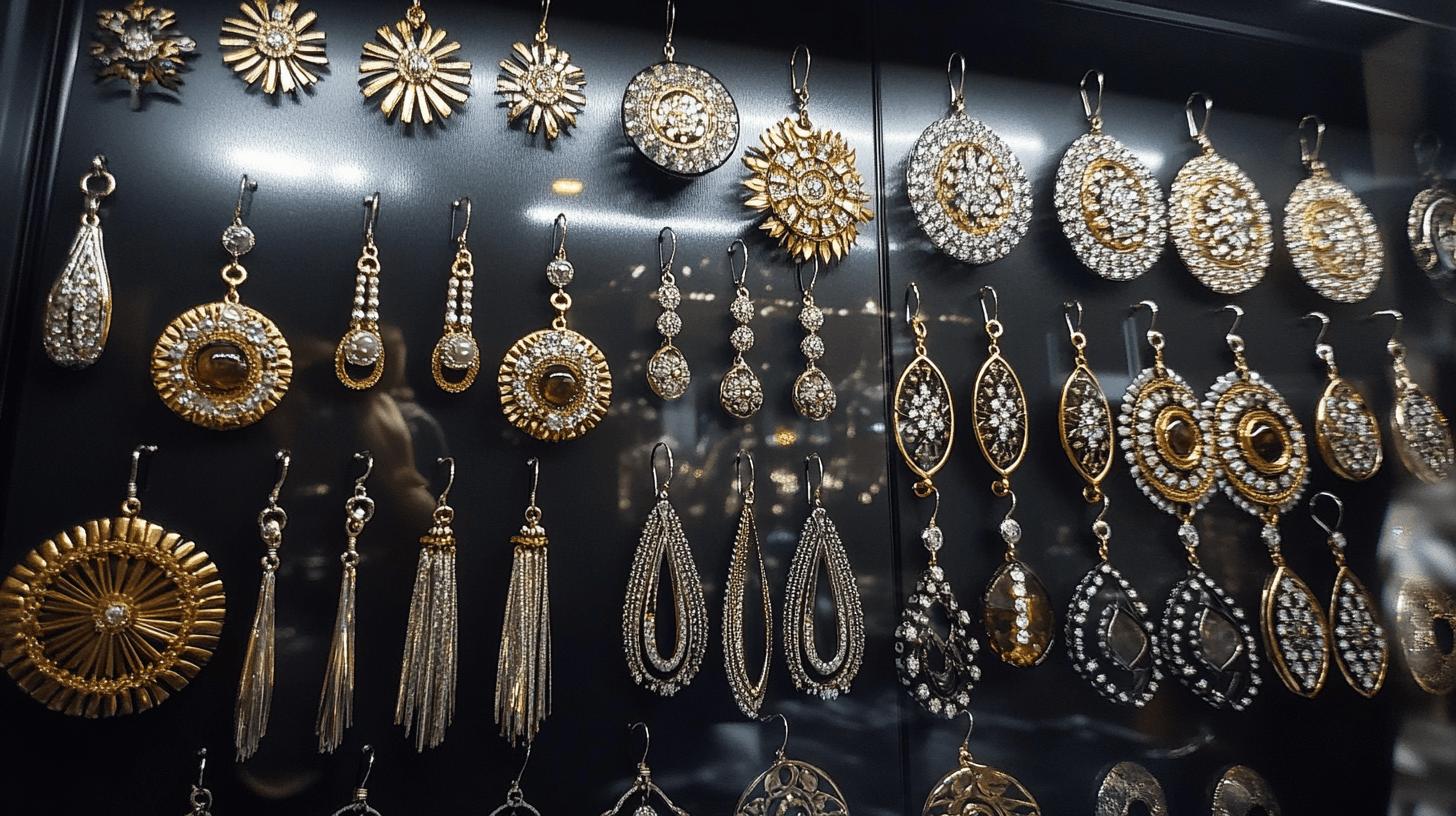
Low-quality earrings often contain mixed metals that can irritate the skin. These metals might not be compatible with sensitive ears, causing discomfort or even allergic reactions. Earrings made of inferior materials can lead to redness, swelling, and persistent soreness, making it essential to be cautious about the quality of jewellery worn.
High-quality materials such as titanium and gold are less likely to cause allergic reactions, making them ideal for sensitive ears. Titanium is prized for its strength and hypoallergenic properties, while gold, particularly when it is of high purity, is gentle on the skin. By choosing earrings made from these materials, individuals with sensitive ears can significantly reduce the risk of irritation and enjoy wearing their jewellery pain-free.
- Minimise the risk of irritation and allergic reactions.
- Provide a comfortable and safe wearing experience.
- Durable and long-lasting, ensuring longevity.
- Available in a variety of stylish designs.
Amore Jewellery offers a selection of high-quality hypoallergenic earrings, designed to cater to those with sensitive ears. Their range includes options crafted from titanium and gold, ensuring both style and comfort. By investing in reputable brands like Amore Jewellery, individuals can avoid the discomfort associated with low-quality earrings and enjoy elegant accessories without the worry of pain or irritation.
Final Words
Understanding why your ears hurt when wearing earrings is essential for preventing discomfort. Allergic reactions, often caused by nickel, and infections due to poorly maintained earrings are common culprits. To manage sensitivities, choose hypoallergenic materials and high-quality pieces, such as those offered by Amore Jewellery.
Prioritising proper care and using quality earrings can enhance comfort and style. By following these guidelines, you’ll enjoy wearing earrings without the worry of pain or irritation. Prioritising the right materials and maintaining cl ensures a pleasant experience.
FAQ
Why does my earring hole hurt after years?
Pain in an earring hole after years can be caused by sensitivity developing over time or an allergic reaction to metals. Using hypoallergenic materials can help reduce discomfort.
How to treat sore ears from earrings?
To treat sore ears, clean the affected area with saline solution and apply a soothing, natural remedy such as aloe vera. Avoid jewellery that irritates the skin.
Why do my ears hurt after putting earrings in after a long time?
Putting earrings in after a break can cause discomfort. This may result from reduced tolerance or a mild allergic response. Ensure the use of hypoallergenic earrings to minimise issues.
Why do my ears get hot and red when I wear earrings?
Ears can get hot and red due to an allergic reaction, commonly to nickel. Opt for nickel-free earrings to prevent such reactions.
Should I take my earrings out if it hurts?
Yes, remove earrings if pain occurs. This allows the ear to heal and prevents potential infections or further irritation.
How do I stop my ears from hurting when I wear earrings?
Use hypoallergenic earrings and keep earring holes clean. Regularly clean and sanitise jewellery to prevent infections.
Why does it hurt every time I wear earrings?
Persistent pain may indicate an allergy to earring materials or improper care practices. Switching to hypoallergenic jewellery and maintaining cleanliness may alleviate pain.
Why are my ears suddenly sensitive to earrings?
Sudden sensitivity can arise from accumulated irritation or an allergic reaction. Consider wearing earrings made from hypoallergenic materials like titanium or gold to reduce symptoms.
Why does only one ear hurt when I wear earrings?
If only one ear hurts, it could be due to a localised allergy, infection, or uneven piercing. Ensure both earrings are clean and made from safe materials.

